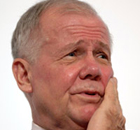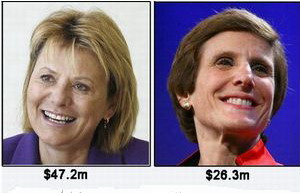Economy
Nation feels pressure from inflow of capital
By Xin Zhiming (China Daily)
Updated: 2010-05-15 09:50
 |
Large Medium Small |
But senior economist says that this is not necessarily "hot money"
BEIJING - China is facing increasing pressure from capital inflows due to increasing foreign direct investment and capital brought in by commercial banks, its foreign exchange regulator said on Friday.
But a senior economist from the Chinese Academy of Social Sciences (CASS) argued that such capital inflows are not necessarily "hot money" as many people have suspected; instead, most of them are the result of rising demand from domestic enterprises for foreign currencies.
China's capital and financial account surplus in the first quarter of this year reached $55 billion, the State Administration of Foreign Exchange (SAFE) said. This was the first time the regulator released quarterly figures on the country's balance of international payments, it said in a statement.
"Pressure from net capital inflows is increasing," said a SAFE official who declined to be named. "But we can't say large capital inflows are definitely hot money," the official said. "The main reason is that there was a big increase in foreign direct investment into China while China's overseas investments declined."
In the first quarter, China's net capital inflows from foreign direct investment rose to $17.5 billion, up 79 percent year-on-year.
Zhang Bin, a researcher with the Institute of Finance and Banking at the CASS, said the inflows are the result of capital holders aiming to profit from the interest rate gap between China and the United States and the expected yuan appreciation.
The US Federal Reserve has kept the interest rate low, at almost zero, while China's one-year benchmark bank savings rate is 2.25 percent.
Meanwhile, the market expects the yuan to appreciate within this year as pressure from the US is mounting while Chinese policymakers have promised to continue to make it more flexible in accordance with the country's economic conditions.
"Those capital inflows may not necessarily be 'hot money' as defined by many people," he said. "Our research and surveys show that many domestic enterprises have borrowed dollars to either gain from the interest rate gap or hedge against foreign exchange risks (caused by the possible yuan appreciation)."
There could be some speculative capital inflows from international speculators, but the amount should be very small, he said. "It's hard for such money to flow in given China's capital account control."
Wang Xiaoyi, deputy head of SAFE, said earlier this month that foreign speculative capital inflows into China are increasing, which posed a challenge to domestic efforts to control liquidity and rising inflation.
SAFE also said in the statement that capital entering the country reflects the positive view international investors hold toward China's economy.
The central bank "has many tools at its disposal to implement its monetary policy", the anonymous SAFE official said. "The central bank still has room for maneuver to defuse the pressure" from large capital inflows.















